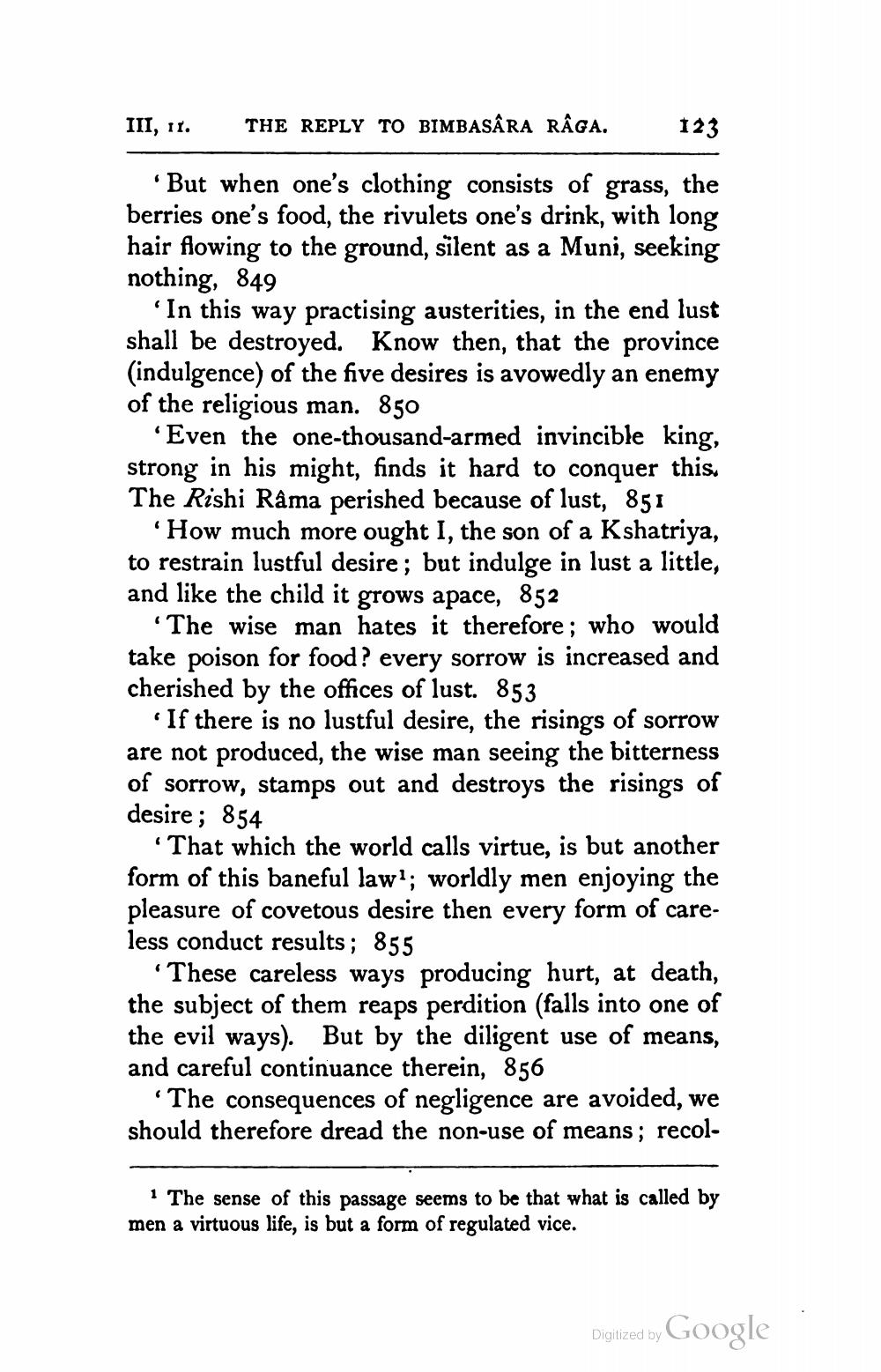________________
III, 11.
THE REPLY TO BIMBASÂRA RÂGA.
123
But when one's clothing consists of grass, the berries one's food, the rivulets one's drink, with long hair flowing to the ground, silent as a Muni, seeking nothing, 849
'In this way practising austerities, in the end lust shall be destroyed. Know then, that the province (indulgence) of the five desires is avowedly an enemy of the religious man. 850
'Even the one thousand-armed invincible king, strong in his might, finds it hard to conquer this. The Rishi Râma perished because of lust, 851
How much more ought I, the son of a Kshatriya, to restrain lustful desire; but indulge in lust a little, and like the child it grows apace, 852
'The wise man hates it therefore; who would take poison for food ? every sorrow is increased and cherished by the offices of lust. 853
If there is no lustful desire, the risings of sorrow are not produced, the wise man seeing the bitterness of sorrow, stamps out and destroys the risings of desire; 854
'That which the world calls virtue, is but another form of this baneful law?; worldly men enjoying the pleasure of covetous desire then every form of careless conduct results; 855
*These careless ways producing hurt, at death, the subject of them reaps perdition (falls into one of the evil ways). But by the diligent use of means, and careful continuance therein, 856
'The consequences of negligence are avoided, we should therefore dread the non-use of means; recol
1 The sense of this passage seems to be that what is called by men a virtuous life, is but a form of regulated vice.
Digitized by Google




